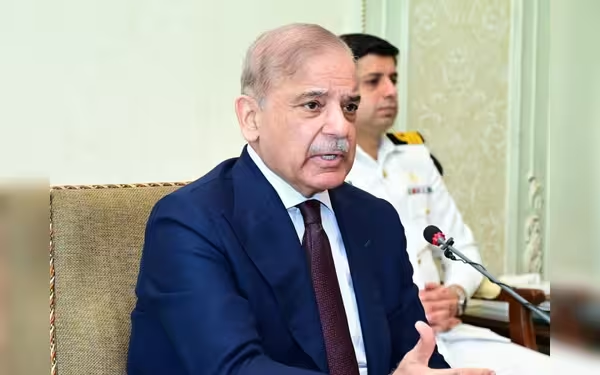Tuesday, July 2, 2024 04:30 PM
Ministry of National Food Security blamed in wheat scandal
- Interim government exonerated, Ministry of National Food Security implicated
- Prime Minister suspends four officials, considers action against former secretary
- Inquiry committee highlights importance of prudent decision-making in wheat management
 Image Credits: tribune_pk
Image Credits: tribune_pkThe inquiry committee findings on the wheat scandal exonerate the interim government and implicate the Ministry of National Food Security. Prime Minister Shehbaz Sharif takes action against officials, emphasizing the importance of prudent decision-making in wheat management.
An inquiry committee looking into the wheat scandal has recently released its findings, exonerating the interim government led by former premier Anwaarul Haq Kakar of any misconduct. Instead, the committee has pointed fingers at the Ministry of National Food Security for its role in the controversial wheat import debacle.
The scandal revolves around the questionable decision to import a significant amount of wheat by the caretaker government, despite the country already having surplus wheat stocks. This unnecessary import, orchestrated by federal institutions, particularly impacted Punjab, which had substantial wheat reserves. The financial repercussions of this ill-fated import surpassed Rs300 billion, causing a significant loss to the national exchequer.
Following the committee's report, Prime Minister Shehbaz Sharif has taken decisive action by suspending four officials from the Ministry of National Food Security. The suspended officers include former Department of Plant Protection director general Allah Ditta Abid, Food Security Commissioners Dr Syed Waseemul Hassan and Imtiaz Ali Gopang, as well as DPP Director Sohail. Additionally, formal measures are being considered against the ministry's former secretary, Muhammad Asif.
Chaired by Cabinet Division Secretary Kamran Ali Afzal, the inquiry committee was established by the prime minister to delve into the country's wheat reserves. The committee's investigation revealed that the unnecessary wheat import, despite a robust domestic crop, led to an oversupply situation. This surplus created challenges for provincial governments in their efforts to procure wheat from local farmers.
Former premier Kakar has downplayed the wheat import controversy, dismissing it as exaggerated. He has questioned the legitimacy of labeling the situation as a scandal, highlighting that wheat prices had actually been on a downward trend rather than escalating.
The wheat scandal has shed light on the complexities of managing food security and agricultural policies. The findings of the inquiry committee have not only cleared the interim government but have also underscored the importance of prudent decision-making in matters concerning essential commodities like wheat. Moving forward, it is crucial for authorities to exercise caution and transparency to prevent such financial losses and disruptions in the agricultural sector.













